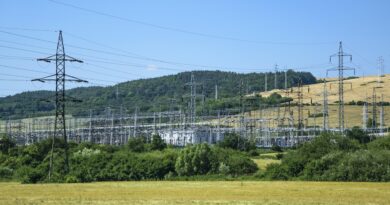Electricity Gone Wild: Unveiling the Most Startling Audit Discoveries
Introduction
In the realm of contemporary civilization, electricity has emerged as an indispensable facet of our existence. It permeates every aspect, from powering our residences and businesses to fueling technological progress. As long as it is adequately regulated and managed, we rely on electricity on a daily basis. However, recent audit findings have unearthed a staggering reality: the unruly behavior of electricity. This article delves into some of the most astounding discoveries made during electricity audits, shedding light on the mismanagement and its implications for our society.
Ghost Consumers: Among the most distressing revelations of electricity audits are the instances of ghost consumers. These clandestine individuals or entities seamlessly evade detection within the electricity grid, surreptitiously siphoning off power without being held accountable or billed for their consumption. The auditors have come across cases of illicit connections, tampered meters, and unauthorized power usage, which inevitably lead to substantial revenue losses for utility companies. The presence of ghost consumers not only burdens law-abiding customers with escalated tariffs but also strains the entire power infrastructure.
Inefficiencies in Distribution: Audit reports have brought to the fore widespread inefficiencies plaguing the distribution system. In numerous instances, it was discovered that electricity was dissipating during transmission due to antiquated infrastructure, faulty transformers, and inadequate maintenance practices. These losses not only contribute to financial setbacks but also result in power shortages and an unreliable supply for consumers. The audit findings emphasize the pressing need to upgrade the aging electricity distribution infrastructure to curtail such losses.
Billing Errors: Billing errors constitute a recurring issue unearthed by electricity audits. Customers frequently find themselves confronted with exorbitant bills for electricity they haven’t consumed, while others go unnoticed and are undercharged. These errors can be attributed to manual data entry blunders, erroneous meter readings, and incorrect tariff calculations. Billing inaccuracies not only subject consumers to financial hardships but also tarnish the reputation of utility companies. The audits underscore the importance of adopting advanced metering systems and implementing robust billing processes to minimize errors and ensure precise billing.
Energy Theft: Energy theft emerges as another shocking revelation stemming from electricity audits. It involves individuals or organizations bypassing the metering system entirely or resorting to illegal methods to curtail their electricity consumption. This illicit practice not only undermines the revenue of utility companies but also poses significant safety hazards due to improper electrical connections. The audits have exposed the dire necessity for stringent monitoring systems, enhanced security measures, and stricter penalties to deter energy theft.
Lack of Accountability: One of the underlying issues laid bare by electricity audits is the pervasive lack of accountability in the power sector. The auditors have unearthed instances of mismanagement, corruption, and favoritism within utility companies and regulatory bodies. Such practices impede the efficient operation of the electricity sector and erode public trust. The audits underscore the significance of establishing transparent governance structures, promoting ethical practices, and holding individuals accountable for their actions.
Renewable Energy Mismanagement: As the world embraces renewable energy sources, electricity audits have shed light on mismanagement within this sector as well. The reports highlight instances of misallocated funds, inefficient utilization of renewable resources, and inadequate maintenance of green energy infrastructure. Such mismanagement not only hampers the transition to a sustainable energy future but also squanders valuable resources. The audits emphasize the imperative for meticulous planning, monitoring, and regulation of renewable energy projects to maximize their benefits.
Conclusion:
The startling revelations arising from electricity audits paint a somber picture of mismanagement, inefficiencies, and malpractices prevalent within the power sector. From the existence of ghost consumers and distribution inefficiencies to billing errors and energy theft, these audit findings expose the vulnerabilities and challenges faced by the electricity industry. Addressing these issues necessitates a multi-faceted approach involving regulatory reforms, infrastructure upgrades, technological advancements, and improved governance. Only by decisively confronting these issues can we ensure a dependable, affordable, and sustainable supply of electricity for present and future generations. It is high time for stakeholders to collaborate and take decisive actions to prevent the unruliness of electricity and pave the way for a new era of responsible energy management.




